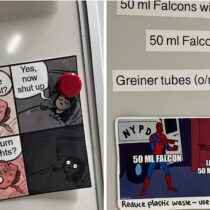Resilience in Adversity: Meeting Children from Kyaka II Refugee Settlement, Uganda
July 4, 2024I am still processing my impressions from a trip to Kyaka II refugee settlement in Southwestern Uganda in January, 2024. The potholed eroded roads are polluted by discarded plastic items that have long served their purpose only to be picked up again by a child. I cannot forget the image of a little girl playing with a broken plastic pistol, pointing it to her temple and pulling the trigger and the “click” that followed again and again as she fired another shot from her gun!

My name is Nicoletta. I am an ETH Alumna, a member of the ETH Circle and on the board of Chance for Childhood (CfC), an international nongovernmental organization (INGO) that focuses on children with disabilities. The experience I would like to share dives into social issues with the hope of fostering understanding on the topics of exclusion and intersectionality.
Understand the system
At Kyaka II, CfC supports children and their families, ensuring safe access to education amidst some of the most challenging circumstances of displacement and trauma.

The refugee settlement is over 80 km2 in size and dotted with mud huts inhabited by approximately 130’000 people mostly from the Democratic Republic of the Congo, victims of the dynamic and complex realties of conflicts within Africa’s Great Lakes Region. Surprisingly, there are no gates or fences as refugees are confined to the area by their circumstances.
A needs assessment conducted by CfC in 2019 on educational and safeguarding needs of children in Kyaka II, revealed that 9% of children aged 5-17 had a disability (versus the national average of 7%) but in schools this fell to 2 % indicating a particularly high dropout rate for children with disabilities.
Shifting perspectives on disability
Children with disabilities face additional discrimination due to stigma, violence and lack of appropriate support and this stigma extends to families.
When it comes to disability, we need to go beyond the medical circumstances to consider the social dimension. Disability is a complex experience and not a condition that cannot be changed. By shifting our mindset we discover that society’s mental attitudes, biases and physical barriers are the true impairment.
Disability should hence not be addressed at the individual level only but requires a multi-layered approach involving all stakeholders.
Partnerships for change
In 2021 CfC launched a programme to tackle the lack of inclusion in education for the most marginalised leaners in the settlement. Today the program is supporting more than 1100 children (aged 5-17) by providing scholastic equipment, learning assistance and training on inclusive education.

This work relies on our partnership with African Women and Youth Action for Development (AWYAD) and teaching assistants from YARID, most of whom are refugees themselves. In our conversation the teachers emphasized the breadth of their work: as educators, mentors and advocates on the importance of education. Their passion was the highlight of my visit.

During the trip to the settlement I was struck by the incredible resilience of children and families living in challenging realities of displacement and exclusion. Their experiences draw attention to the role of society in inclusion and should inspire us to contribute to removing obstacles and working towards a more inclusive and equitable future.



